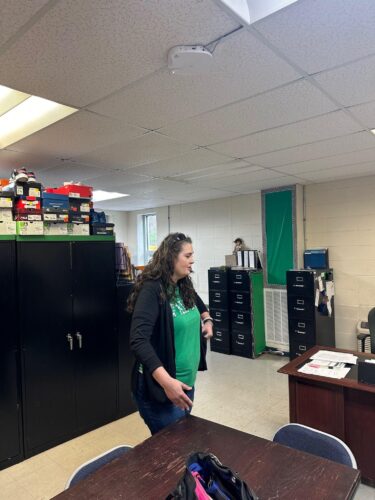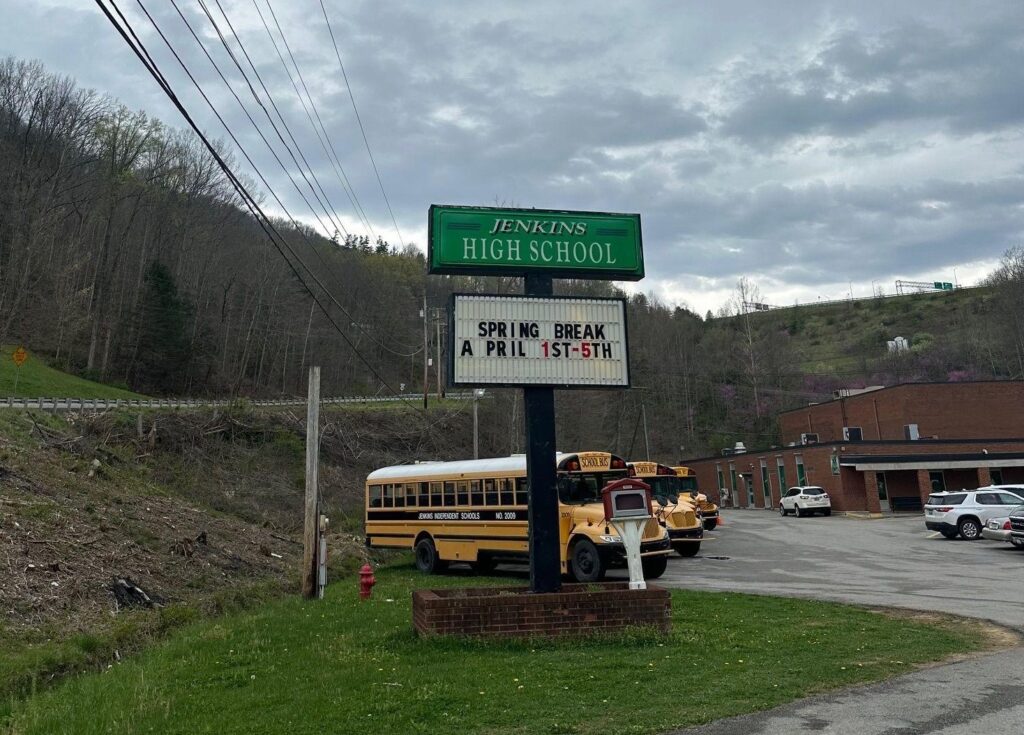During my visit to Letcher County for the first time since the historic flooding that struct southeastern Kentucky in July 2022, I first visited Jenkins Independent Schools. Jenkins Independent Schools comprises two schools: Burdine Elementary and Jenkins Middle-High. Several years ago, at the request of our coordinator, Angela, Children Incorporated “administratively merged” Burdine Elementary into Jenkins Middle-High. They operate as one affiliated site. Angie looks over both schools; they share one Family Resource Youth Services Center. Angie travels between the two regularly.
After the pandemic learning loss, the students are slowly gaining ground. The middle school children are still struggling, but most high school students have hit average benchmarks.
After the flooding
Burdine Elementary School was damaged during the floods in July 2022, but officials agree it could have been worse. There were 3 feet of water outside, but all the doors held. About 4 inches of water was pushed in throughout the building. However, the flood did destroy the separate preschool building. Outside, all the fencing and playground equipment was destroyed and swept downstream.
When elementary school children first enroll, many are not school-ready. The pandemic years also caused learning loss. At present, elementary school children are not performing well in state standardized tests. The children are struggling not only academically but also financially. 82.3% come from low-income families.
Hearing about the students
After a tour of both campuses, Angie and I met at her high school office. She said the enrollment at the elementary school is about 203, and at the middle school, it’s about 236. Angie plans to add more children in the new school year and may include the preschool children, too.

Angie (pictured) shows Renée the Resource Center during her visit.
Angie shared that her students are dealing with persistent poverty. 86% come from low-income families. There are no more active coal mines in Jenkins. The best jobs are with the school system or the small regional hospital. The remaining available work is small retail or service jobs, such as at dollar stores, gas stations, and fast-food restaurants.
After the pandemic learning loss, the students are slowly gaining ground. The middle school children are still struggling, but most high school students have hit average benchmarks.
On to college for Jacob
Angie likes to do much of her Children Incorporated shopping at Sam’s Club. She mainly purchases clothing, hygiene items, and food. Then, she called a student named Jacob into the room for me to meet.* Jacob is polite and very well-spoken. He is ready to graduate from high school and is still thinking about what he wants to do for his future. Jacob said he is frankly tired of the school routine and is ready for a break and a change. A part of him wants to take a “gap year,” where he can work and get a paycheck. Another part of him wants to plow through and get college done and behind him. When we spoke, Jacob had applied to a couple of places but hadn’t heard back.
Happily, in mid-May, Angie called me with the very good news that Jacob had just received an acceptance letter from Alice Lloyd College, which is adjacent to Knott County. The college is tuition-free! The costs are funded by donations from across the country. However, there are costs for room and board, textbooks, fees, and other miscellaneous expenses. Angie asked if she could nominate Jacob for our Higher Education Program. I gave them an extension, and they told me to get the application to me soon. I am thrilled for Jacob to have this opportunity.
*Name changed to protect the child.
***
How do I sponsor a child with Children Incorporated?
You can sponsor a child in one of three ways: call our office at 1-800-538-5381 and speak with one of our staff members; email us at sponsorship@children-inc.org; or go online to our sponsorship portal, create an account, and search for a child that is available for sponsorship.

